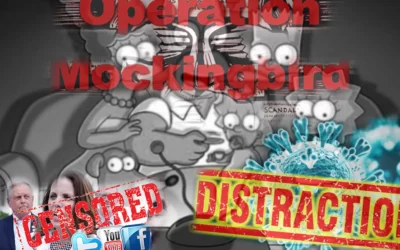http://youtu.be/jXeVgEs4sOo
 Dick’s stories typically focus on the fragile nature of what is “real” and the construction of personal identity. His stories often become surreal fantasies as the main characters slowly discover that their everyday world is actually an illusion constructed by powerful external entities (such as in Ubik[32]), vast political conspiracies, or simply from the vicissitudes of an unreliable narrator. “All of his work starts with the basic assumption that there cannot be one, single, objective reality”, writes science fiction author Charles Platt. “Everything is a matter of perception. The ground is liable to shift under your feet. A protagonist may find himself living out another person’s dream, or he may enter a drug-induced state that actually makes better sense than the real world, or he may cross into a different universe completely.”[29]
Dick’s stories typically focus on the fragile nature of what is “real” and the construction of personal identity. His stories often become surreal fantasies as the main characters slowly discover that their everyday world is actually an illusion constructed by powerful external entities (such as in Ubik[32]), vast political conspiracies, or simply from the vicissitudes of an unreliable narrator. “All of his work starts with the basic assumption that there cannot be one, single, objective reality”, writes science fiction author Charles Platt. “Everything is a matter of perception. The ground is liable to shift under your feet. A protagonist may find himself living out another person’s dream, or he may enter a drug-induced state that actually makes better sense than the real world, or he may cross into a different universe completely.”[29]
Alternate universes and simulacra were common plot devices, with fictional worlds inhabited by common, working people, rather than galactic elites. “There are no heroes in Dick’s books”, Ursula K. Le Guin wrote, “but there are heroics. One is reminded of Dickens: what counts is the honesty, constancy, kindness and patience of ordinary people.”[32] Dick made no secret that much of his thinking and work was heavily influenced by the writings of Carl Jung.[26][33] The Jungian constructs and models that most concerned Dick seem to be the archetypes of the collective unconscious, group projection/hallucination, synchronicities, and personality theory.[26] Many of Dick’s protagonists overtly analyze reality and their perceptions in Jungian terms (see Lies Inc.), while other times, the themes are so obviously in reference to Jung their usage needs no explanation.[citation needed] Dick’s self-named Exegesis also contained many notes on Jung in relation to theology and mysticism.[citation needed]
“Phil Dick’s third major theme is his fascination with war and his fear and hatred of it. One hardly sees critical mention of it, yet it is as integral to his body of work as oxygen is to water.” – Steven Owen Godersky[34]
Dick frequently focused on the question, “What is human?” In works such as Do Androids Dream of Electric Sheep? beings can appear totally human in every respect while lacking soul or compassion, while completely alien beings such as Glimmung in Galactic Pot-Healer may be more humane and complex than Dick’s human characters.
Mental illness was a constant interest of Dick’s, and themes of mental illness permeate his work. The character Jack Bohlen in the 1964 novel Martian Time-Slip is an “ex-schizophrenic”. The novel Clans of the Alphane Moon centers on an entire society made up of descendants of lunatic asylum inmates. In 1965 he wrote the essay titled Schizophrenia and the Book of Changes.[35]
Drug use (including religious, recreational, and abuse) was also a theme in many of Dick’s works, such as A Scanner Darkly and The Three Stigmata of Palmer Eldritch. Dick was a drug user for much of his life. According to a 1975 interview in Rolling Stone,[36] Dick wrote all of his books published before 1970 while on amphetamines. “A Scanner Darkly (1977) was the first complete novel I had written without speed”, said Dick in the interview. He also experimented briefly with psychedelics, but wrote The Three Stigmata of Palmer Eldritch, which Rolling Stone dubs “the classic LSD novel of all time”, before he had ever tried them. Despite his heavy amphetamine use, however, Dick later said that doctors had told him that the amphetamines never actually affected him, that his liver had processed them before they reached his brain.[36]
Summing up all these themes in Understanding Philip K. Dick, Eric Carl Link discussed eight themes or ‘ideas and motifs’[37]: Epistemology and the Nature of Reality, Know Thyself, The Android and the Human, Entropy and Pot Healing, The Theodicy Problem, Warfare and Power Politics, The Evolved Human, and ‘Technology, Media, Drugs and Madness’.[38]
Selected works
The Man in the High Castle (1962) is set in an alternate universe United States ruled by the victorious Axis powers. It is considered a defining novel of the alternate history sub-genre,[39] and is the only Dick novel to win a Hugo Award.
The Three Stigmata of Palmer Eldritch (1965) utilizes an array of science fiction concepts and features several layers of reality and unreality. It is also one of Dick’s first works to explore religious themes. The novel takes place in the 21st century, when, under UN authority, mankind has colonized the Solar System‘s every habitable planet and moon. Life is physically daunting and psychologically monotonous for most colonists, so the UN must draft people to go to the colonies. Most entertain themselves using “Perky Pat” dolls and accessories manufactured by Earth-based “P.P. Layouts”. The company also secretly creates “Can-D”, an illegal but widely available hallucinogenic drug allowing the user to “translate” into Perky Pat (if the drug user is a woman) or Pat’s boyfriend, Walt (if the drug user is a man). This recreational use of Can-D allows colonists to experience a few minutes of an idealized life on Earth by participating in a collective hallucination.
Do Androids Dream of Electric Sheep? (1968) is the story of a bounty hunter policing the local android population. It occurs on a dying, poisoned Earth de-populated of all “successful” humans; the only remaining inhabitants of the planet are people with no prospects off-world. The 1968 story is the literary source of the film Blade Runner (1982).[40] It is both a conflation and an intensification of the pivotally Dickian question, What is real, what is fake? What crucial factor defines humanity as distinctly ‘alive’, versus those merely alive only in their outward appearance?
Ubik (1969) uses extensive networks of psychics and a suspended state after death in creating a state of eroding reality. A group of psychics is sent to investigate a group of rival psychics, but several of them are apparently killed by a saboteur’s bomb. Much of the novel flicks between a number of equally plausible realities; the “real” reality, a state of half-life and psychically manipulated realities. In 2005, Time magazine listed it among the “All-TIME 100 Greatest Novels” published since 1923.[13]
Flow My Tears, the Policeman Said (1974) concerns Jason Taverner, a television star living in a dystopian near-future police state. After being attacked by an angry ex-girlfriend, Taverner awakens in a dingy Los Angeles hotel room. He still has his money in his wallet, but his identification cards are missing. This is no minor inconvenience, as security checkpoints (manned by “pols” and “nats”, the police and National Guard) are set up throughout the city to stop and arrest anyone without valid ID. Jason at first thinks that he was robbed, but soon discovers that his entire identity has been erased. There is no record of him in any official database, and even his closest associates do not recognize or remember him. For the first time in many years, Jason has no fame or reputation to rely on. He has only his innate charisma to help him as he tries to find out what happened to his past and avoid the attention of the pols. The novel was Dick’s first published novel after years of silence, during which time his critical reputation had grown, and this novel was awarded the John W. Campbell Memorial Award for Best Science Fiction Novel.[8] It is the only Philip K. Dick novel nominated for both a Hugo and for a Nebula Award.
In an essay written two years before dying, Dick described how he learned from his Episcopalian priest that an important scene in Flow My Tears, the Policeman Said – involving its other main character, Police General Felix Buckman, the policeman of the title – was very similar to a scene in the Acts of the Apostles.[30] Film director Richard Linklater discusses this novel in his film Waking Life, which begins with a scene reminiscent of another Dick novel, Time Out of Joint.
A Scanner Darkly (1977) is a bleak mixture of science fiction and police procedural novels; in its story, an undercover narcotics police detective begins to lose touch with reality after falling victim to the same permanently mind altering drug, Substance D, he was enlisted to help fight. Substance D is instantly addictive, beginning with a pleasant euphoria which is quickly replaced with increasing confusion, hallucinations and eventually total psychosis. In this novel, as with all Dick novels, there is an underlying thread of paranoia and dissociation with multiple realities perceived simultaneously. It was adapted to film by Richard Linklater.
VALIS (1980) is perhaps Dick’s most postmodern and autobiographical novel, examining his own unexplained experiences. It may also be his most academically studied work, and was adapted as an opera by Tod Machover.[41] Later works like the VALIS trilogy were heavily autobiographical, many with “two-three-seventy-four” (2-3-74) references and influences. The word VALIS is the acronym for Vast Active Living Intelligence System. Later, PKD theorized that VALIS was both a “reality generator” and a means of extraterrestrial communication. A fourth VALIS manuscript, Radio Free Albemuth, although composed in 1976, was posthumously published in 1985. This work is described by the publisher (Arbor House) as “an introduction and key to his magnificent VALIS trilogy.”
Regardless of the feeling that he was somehow experiencing a divine communication, Dick was never fully able to rationalize the events. For the rest of his life, he struggled to comprehend what was occurring, questioning his own sanity and perception of reality. He transcribed what thoughts he could into an eight-thousand-page, one-million-word journal dubbed the Exegesis. From 1974 until his death in 1982, Dick spent many nights writing in this journal. A recurring theme in Exegesis is PKD’s hypothesis that history had been stopped in the 1st century AD., and that “the Empire never ended”. He saw Rome as the pinnacle of materialism and despotism, which, after forcing the Gnostics underground, had kept the population of Earth enslaved to worldly possessions. Dick believed that VALIS had communicated with him, and anonymous others, to induce the impeachment of U.S. President Richard Nixon, whom Dick believed to be the current Emperor of Rome incarnate.
In a 1968 essay titled “Self Portrait”, collected in the 1995 book The Shifting Realities of Philip K. Dick, Dick reflects on his work and lists which books he feels “might escape World War Three”: Eye in the Sky, The Man in the High Castle, Martian Time-Slip, Dr. Bloodmoney, or How We Got Along After the Bomb, The Zap Gun, The Penultimate Truth, The Simulacra, The Three Stigmata of Palmer Eldritch (which he refers to as “the most vital of them all”), Do Androids Dream of Electric Sheep?, and Ubik.[42] In a 1976 interview, Dick cited A Scanner Darkly as his best work, feeling that he “had finally written a true masterpiece, after 25 years of writing”.[43]
Adaptations
Films
A number of Dick’s stories have been made into films. Dick himself wrote a screenplay for an intended film adaptation of Ubik in 1974, but the film was never made. Many film adaptations have not used Dick’s original titles. When asked why this was, Dick’s ex-wife Tessa said, “Actually, the books rarely carry Phil’s original titles, as the editors usually wrote new titles after reading his manuscripts. Phil often commented that he couldn’t write good titles. If he could, he would have been an advertising writer instead of a novelist.”[44] Films based on Dick’s writing have accumulated a total revenue of over US $1 billion as of 2009.[45]
- Blade Runner (1982), based on Dick’s 1968 novel Do Androids Dream of Electric Sheep?, directed by Ridley Scott and starring Harrison Ford. A screenplay had been in the works for years before Scott took the helm, with Dick being extremely critical of all versions. Dick was still apprehensive about how his story would be adapted for the film when the project was finally put into motion. Among other things, he refused to do a novelization of the film. But contrary to his initial reactions, when he was given an opportunity to see some of the special effects sequences of Los Angeles 2019, Dick was amazed that the environment was “exactly as how I’d imagined it!”, though Ridley Scott has mentioned he had never even read the source material.[46] Following the screening, Dick and Scott had a frank but cordial discussion of Blade Runner’s themes and characters, and although they had wildly differing views, Dick fully backed the film from then on, stating that his “life and creative work are justified and completed by Blade Runner.”[47] Dick died from a stroke less than four months before the release of the film.
- Total Recall (1990), based on the short story “We Can Remember It for You Wholesale“, directed by Paul Verhoeven and starring Arnold Schwarzenegger. The film includes such Dickian elements as the confusion of fantasy and reality, the progression towards more fantastic elements as the story progresses, machines talking back to humans, and the protagonist’s doubts about his own identity.
- Confessions d’un Barjo (1992), titled Barjo in its English-language release, a French film based on Dick’s non-science-fiction novel Confessions of a Crap Artist. Reflecting Dick’s popularity and critical respect in France, Barjo faithfully conveys a strong sense of Dick’s aesthetic sensibility, unseen in the better-known film adaptations. A brief science fiction homage is slipped into the film in the form of a TV show.
- Screamers (1995), based on Dick’s short story “Second Variety“, directed by Christian Duguay and starring Peter Weller. The location was altered from a war-devastated Earth to a distant planet. A sequel without Weller, titled Screamers: The Hunting, was released straight to DVD in 2009.
- Minority Report (2002), based on Dick’s short story of “The Minority Report“, directed by Steven Spielberg and starring Tom Cruise. The film translates many of Dick’s themes, but changes major plot points and adds an action-adventure framework.
- Dick’s 1953 story “Impostor” has been adapted twice: first in 1962 for the British anthology television series Out of This World and then in 2002 for the movie Impostor, directed by Gary Fleder and starring Gary Sinise, Vincent D’Onofrio and Madeleine Stowe.
- Paycheck (2003), directed by John Woo and starring Ben Affleck, based on Dick’s short story of the same name.
- A Scanner Darkly (2006), directed by Richard Linklater and starring Keanu Reeves, Winona Ryder, and Robert Downey Jr., based on Dick’s novel of the same name. The film was produced using the process of rotoscoping: it was first shot in live-action and then the live footage was animated over.
- Next (2007), directed by Lee Tamahori and starring Nicolas Cage, loosely based on the short story “The Golden Man“.
- Radio Free Albemuth (2010), directed by John Alan Simon loosely based on the novel “Radio Free Albemuth“.
- The Adjustment Bureau (2011), directed by George Nolfi and starring Matt Damon, loosely based on the short story “Adjustment Team“.
- Total Recall (2012), directed by Len Wiseman and starring Colin Farrell, remake of the 1990 film and second adaptation of the short story “We Can Remember It for You Wholesale“.
Future films based on Dick’s writing include the animated adaptation King of the Elves from the Walt Disney Animation Studios, set to be released in the winter of 2012; Radio Free Albemuth, based on Dick’s novel of the same name, which has been completed and is currently awaiting distribution; and a film adaptation of Ubik which, according to Dick’s daughter, Isa Dick Hackett, is in advanced negotiation.[48] Ubik is set to be made into a film by Michel Gondry.[49]
The Halcyon Company, known for developing the Terminator franchise, acquired right of first refusal to film adaptations of the works of Philip K. Dick in 2007. In May 2009, they announced plans for an adaptation of Flow My Tears, the Policeman Said.[50] It has been reported in 2010 that Ridley Scott will produce an adaptation of The Man in the High Castle for BBC, in the form of a mini-series.[51]



